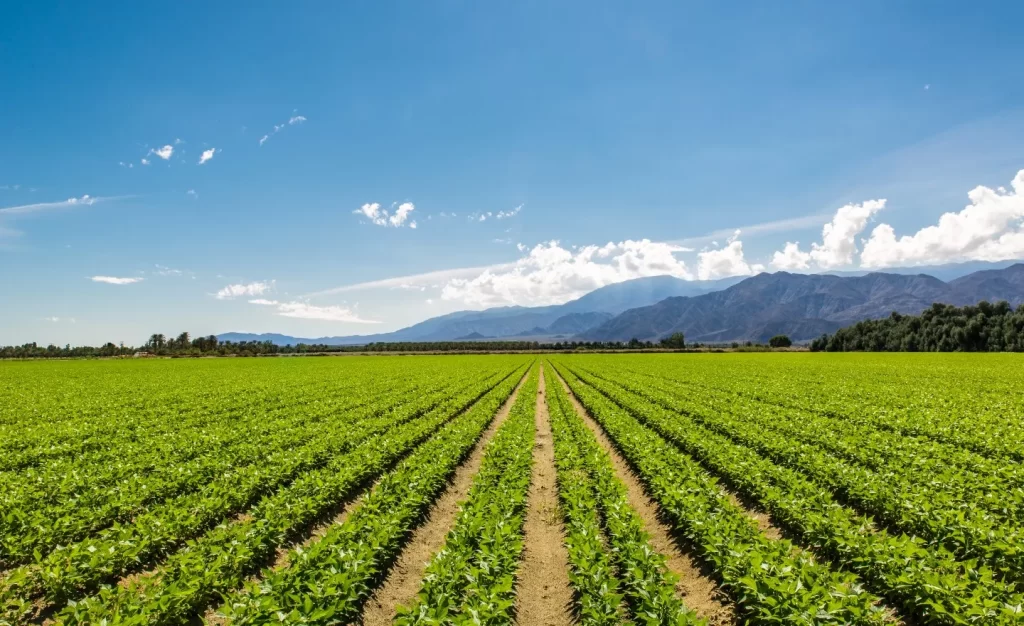
Efficiency and connectivity of transportation networks, access to utility services, road quality, water systems, and infrastructure investments play pivotal roles in influencing farm valuations in Alabama. Proximity to well-maintained highways and water systems directly impact market reach, crop yields, and livestock health. Moreover, the quality of road infrastructure and access to reliable utilities greatly contribute to the economic viability and attractiveness of farming properties in the state. Understanding these factors can provide valuable insights into maximizing farm valuations in Alabama.
Key Takeaways
- Alabama’s extensive road network enhances market reach and increases farm valuations.
- Access to well-maintained highways, railways, and ports reduces transportation costs for farmers.
- Water systems play a significant role in farm valuations by impacting crop health and livestock watering.
- Infrastructure investment in utilities, roads, and water systems ensures long-term farm sustainability.
- Improved road quality and utility access attract investors, enhance property attractiveness, and boost farm valuations.
Importance of Transportation Networks
The efficiency and connectivity of transportation networks play an important role in determining farm valuations in Alabama. Farms situated in proximity to well-maintained highways, railways, and ports often command higher valuations due to easier access to markets for their products. An efficient transportation network reduces transportation costs, allowing farmers to bring their goods to market more economically. Additionally, it enables the timely delivery of agricultural inputs such as seeds, fertilizers, and equipment, which are vital for farm operations. In Alabama, the state’s extensive network of roads and highways facilitates the transportation of agricultural products to regional and national markets efficiently. Additionally, access to intermodal transportation facilities enhances the connectivity of farms to various modes of transportation, further improving their market reach. This connectivity not only benefits individual farms but also contributes to the overall economic development of the agricultural sector in the state.Influence of Utility Access
In evaluating farm valuations in Alabama, the availability and reliability of utility access have a significant impact on the economic viability and sustainability of agricultural operations. Reliable utility access is essential for modern farming practices, affecting everything from irrigation systems to livestock operations. Here are four key points highlighting the influence of utility access on farm valuations:- Water Supply: Adequate access to water resources directly impacts crop yields and livestock health. Farms with reliable water sources are more valuable due to reduced risk and higher productivity.
- Electricity: Electricity is necessary for running farm equipment, lighting, cooling systems, and more. Farms with stable access to electricity are more efficient and productive, therefore commanding higher valuations.
- Internet Connectivity: In today’s digital age, internet access is crucial for marketing, monitoring weather patterns, accessing agricultural data, and managing operations. Farms with reliable internet connectivity are at a competitive advantage.
- Natural Gas: Natural gas is often used for heating, drying crops, and powering certain equipment. Farms with access to natural gas can lower operational costs and increase profitability.
Role of Road Quality
Improved road quality plays a pivotal role in enhancing transportation efficiency and accessibility for farms in Alabama. Roads serve as the primary mode of transportation for farmers to transport goods, equipment, and supplies to and from their farms. Well-maintained roads reduce transportation costs and time, allowing farmers to efficiently move their products to markets or processing facilities. Additionally, good road quality facilitates access to essential services such as agricultural extension offices, equipment repair shops, and input suppliers, all of which are crucial for the smooth operation of farms. Furthermore, improved road infrastructure can attract potential investors and buyers to farm properties. Easy access via well-kept roads makes farms more desirable and valuable, as it signals a higher level of connectivity and convenience. Investors may view properties with good road access as having greater potential for development or expansion, which can positively impact farm valuations. Ultimately, the role of road quality in farm valuations cannot be underestimated, as it directly influences the efficiency, accessibility, and attractiveness of farms in Alabama.Impact of Water Systems
Enhancing the efficiency and productivity of farms in Alabama, water systems play an essential role in ensuring adequate irrigation and livestock needs are met. Proper water management is critical for agricultural operations, impacting crop yields, livestock health, and overall farm profitability. The impact of water systems on farm valuations in Alabama is significant, with several key factors influencing their importance:- Irrigation Availability: Reliable access to water for irrigation purposes is necessary for maintaining crop health and ensuring consistent yields throughout the growing season.
- Livestock Watering: Sufficient water supply for livestock is crucial for their health and growth, directly affecting the quality of meat, milk, or other animal products produced on the farm.
- Water Quality: The quality of water used for irrigation and livestock consumption can affect soil fertility, plant health, and animal well-being, ultimately influencing farm productivity and profitability.
- Infrastructure Maintenance: Proper upkeep of water systems, including pumps, pipelines, and storage facilities, is essential to prevent disruptions in water supply and ensure long-term sustainability of agricultural operations.
